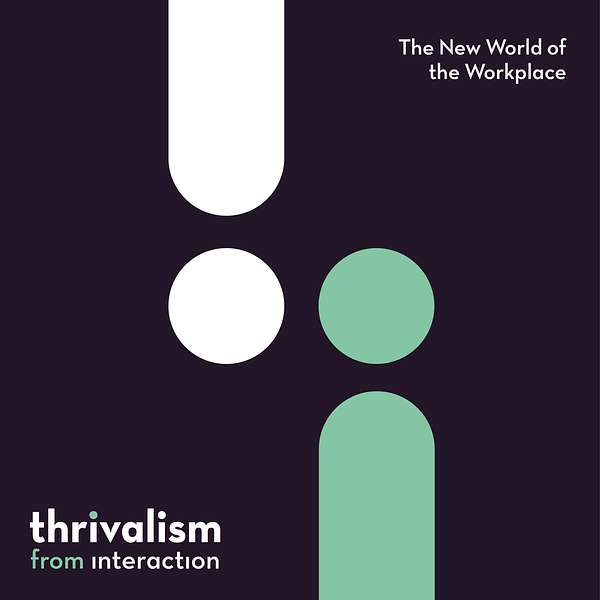
Interaction's Thrivalism
Welcome to Thrivalism, Interaction’s podcast focused on the art of thriving – flourishing and evolving under any conditions. In this series we’ll examine how to create thriving businesses, culture, careers and places. We’ll explore key topics such as: workplace design and build, culture and community, sustainability, and, of course, the future of ‘work’. Join us and our guests as we explore how people and business can set themselves up to not just to survive – but thrive.
Interaction's Thrivalism
Nature's Design - How Biophilic Design Affects Wellbeing with Andrew Grant
In this insightful podcast episode, join us as we dive into the world of landscape architecture with Andrew Grant, a seasoned expert in the field. With a career spanning decades, Andrew shares his journey and the evolution of sustainable design practices.
Starting with his early experiences growing up on a farm in East Yorkshire, Andrew discusses how his deep connection to nature and the environment shaped his unique perspective on landscape architecture. From his studies in Edinburgh to his pioneering work on the Earth Centre Project in Doncaster, his commitment to ecological principles and sustainability shines through.
Discover how Andrew and his firm, Andrew Grant Associates, embarked on groundbreaking projects, including the iconic "Gardens by the Bay" in Singapore, where creativity and nature intertwine to create a lush urban oasis.
As we explore Andrew's creative process and the challenges of promoting sustainability in historical cities like Bath, you'll gain valuable insights into the future of landscape architecture and the role it plays in creating greener, more sustainable cities.
Join us for an engaging conversation that inspires a new way of thinking about landscapes and their impact on our lives and the environment.
Links to check out:
Landscape architects, Bath, UK and Singapore, Asia | Grant Associates (grant-associates.uk.com)
Gardens by the Bay
Welcome To The Bathscape | Bath | Somerset
Thanks for listening! Check out Interaction's website for more workplace culture content and case studies (or just follow us on LinkedIn and Twitter).
Transcript summary:
Today, we have Andrew Grant with us. Andrew, great to have you on. Let's dive right into your background and how it's influenced your approach to work and the landscape.
Andrew Grant: Well, I grew up on a farm in East Yorkshire, immersed in the natural world. This upbringing built my knowledge and experiences with nature. When I looked for a career that combined my interests in science and art, I discovered landscape architecture. My studies at Edinburgh College of Art and Heriot-Watt University further shaped my ecological approach.
Toby: Your journey eventually led you to Singapore's Gardens by the Bay project. How did that come about, and what were the key concepts behind it?
Andrew Grant: Gardens by the Bay was a competition we entered in 2006. We aimed to create an ecosystem within a park that was both a tourist attraction and a botanic garden. The key concepts included environmental sustainability, diverse experiences for visitors, and iconic structures like the Supertrees, which provided shade, energy, and habitat for wildlife.
Toby: Moving from Singapore to Bath, what are your thoughts on Bath's challenges and potential for the future?
Andrew Grant: Bath, with its rich history and heritage, faces challenges in embracing new development and sustainability. I believe we should focus on integrating the local landscape, using Bath stone creatively, and building more green pathways for easy access to nature.
Toby: Your creative process often starts with understanding the site. How do you approach developing ideas for your projects?
Andrew Grant: It varies by project. Sometimes, we find an overarching concept, like the orchid metaphor for Singapore, which guides the entire design. Other times, it's about meeting practical needs, like creating green corridors or pathways.
Toby: Looking ahead, where do you see the sustainability conversation heading in the next five years, especially in the built environment?
Andrew Grant: I see a surge of urgency in the built environment to address sustainability. The focus will shift toward environmental impact reduction, biodiversity, and the integration of green spaces into urban designs. We'll need to continue pushing for innovative and sustainable solutions.

